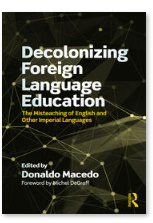Decolonizing the French Language Class… Digital story-telling?
As I go through (the limited) literature about de-colonizing French Immersion classes, I find that a lot of it is Social Studies focused. Where I struggle is more in my Core French and FRAL courses. I realize I’d also love to implement more technology while also de-colonizing my classroom. Before taking the course, technology and indigeneity seemed like oil and water to me. However, I’m seeing that there are ways in using technology while also making space for Indigenous knowledge and ways of teaching in my classroom. I’m curious to know more about digital story-telling as a way to learn more about Indigenous stories but for students to also tell their own stories in relation to the land where they are situated. I will be using modules 3 and 4 to explore some directions for my research paper, so I apologize if they are a little all over the place!

